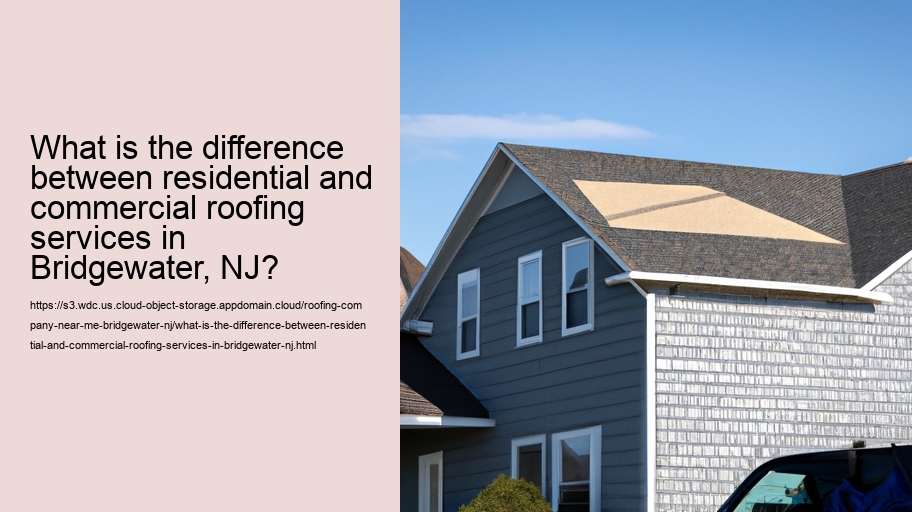When considering roofing services in Bridgewater, NJ, it's essential to understand the distinction between residential and commercial roofing. What is the average cost of roofing services in Bridgewater, NJ? . Both serve the primary function of protecting buildings from the elements, but they differ significantly in terms of materials, design, installation processes, and other key aspects.
Materials and Design
One of the most noticeable differences between residential and commercial roofing services is the type of materials used. Residential roofs in Bridgewater typically utilize materials like asphalt shingles, wood shakes, metal, or tile. These materials are chosen not only for their durability but also for their aesthetic appeal, as homeowners often prioritize how their roof complements the overall look of their house.
In contrast, commercial roofing often involves materials like single-ply membranes (TPO, PVC, EPDM), modified bitumen, or built-up roofing systems. These materials are selected for their durability and ability to cover large surface areas efficiently. Commercial roofs are usually flat or have a low slope, which influences the choice of material and design to ensure proper drainage and weather resistance.
Installation Techniques
The installation process for residential and commercial roofs also varies significantly. Residential roofing is generally more straightforward, given the smaller size and simpler design of most homes. The process often involves nailing shingles in place and can be completed relatively quickly.
Commercial roofing, however, requires a more complex approach. The larger surface area, combined with the flat or low-sloped design, means that more attention must be paid to waterproofing and ensuring the roof can withstand various weather conditions. Installation often requires specialized equipment and techniques, such as the use of large sheets of membrane that are heat-welded or adhered to the roof substrate. This complexity often results in longer installation times and more specialized labor.
Maintenance and Repair
Maintenance and repair needs also differ between residential and commercial roofs. Residential roofs, with their sloped design, naturally shed debris and water, leading to fewer maintenance issues. However, they still require regular inspections to check for loose or damaged shingles, especially after severe weather events common in New Jersey.
Commercial roofs, on the other hand, require more frequent maintenance due to their flat design, which can result in water pooling and debris accumulation. Regular inspections and maintenance are crucial to prevent leaks and structural damage. This often involves more intensive work, such as clearing drainage systems and repairing membrane seams.
Cost Considerations
Cost is another factor where residential and commercial roofing diverge. Residential roofing projects tend to be less expensive, given the smaller size and simpler design. The materials used, such as asphalt shingles, are generally more affordable than those used in commercial projects.
Commercial roofing, by virtue of its complexity and the durable materials required, typically involves higher costs. The necessity for specialized installation techniques and equipment also contributes to the increased expense. However, the investment is justified by the longevity and durability of the roofing system, which is critical for protecting larger buildings where business operations depend on a secure environment.
Regulatory Differences
Lastly, regulatory considerations can differ. Residential roofing projects in Bridgewater must comply with local building codes that dictate materials and installation practices to ensure safety and energy efficiency. For commercial roofs, there are often additional regulations to consider, including those related to fire resistance, energy use, and environmental impact, as commercial buildings typically have more stringent requirements due to their size and the number of occupants.
In conclusion, while both residential and commercial roofing services in Bridgewater, NJ, aim to protect buildings from the elements, they differ considerably in terms of materials, design, installation techniques, maintenance, cost, and regulations. Understanding these differences is crucial for property owners and managers to make informed decisions that ensure the longevity and reliability of their roofing systems. Whether it's a cozy home or a sprawling commercial complex, the right roofing service is essential to safeguard the structure and its occupants.
